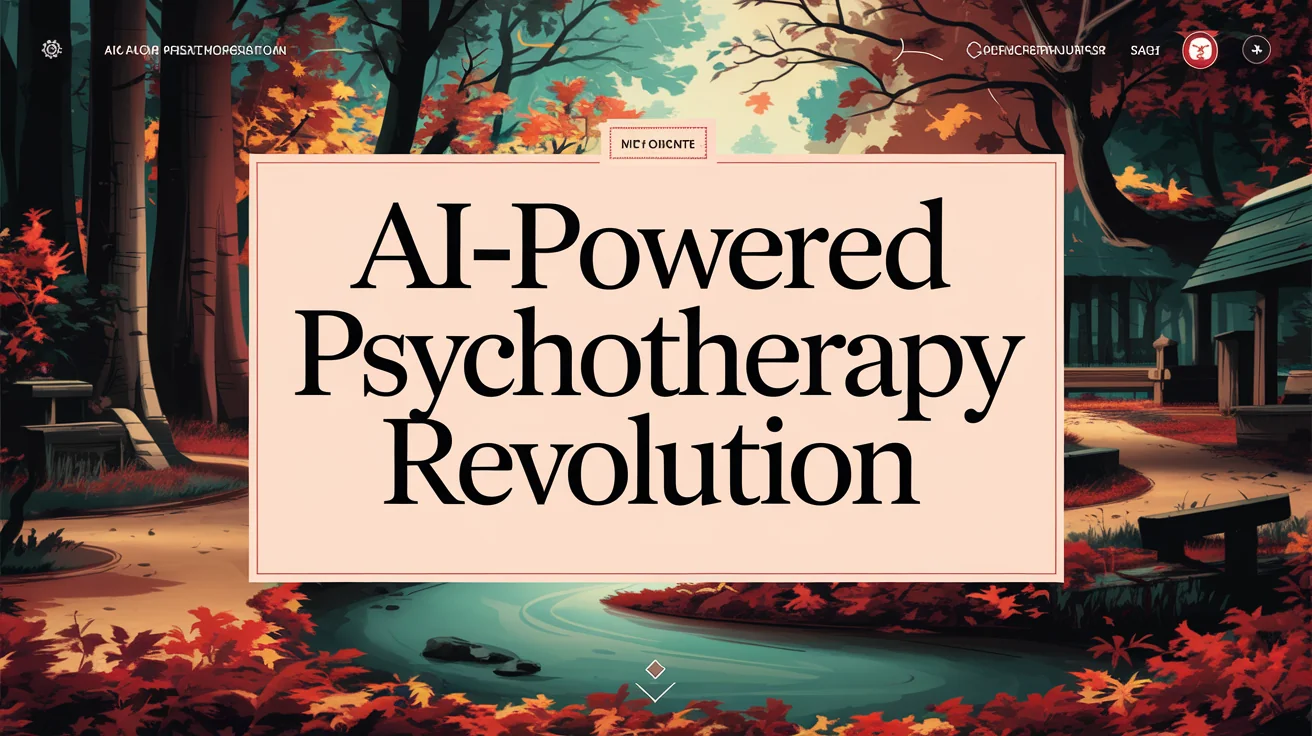AI-Powered Psychotherapy Revolution

In recent decades, the evolution of psychotherapy has remained relatively unchanged, with the traditional image of the therapist and client dominating public perception. However, the advent of Large-Language-Model (LLM)-based artificial intelligence is set to modify this landscape significantly, offering the potential for a more scientific approach to therapy. The integration of AI into clinical settings represents a critical shift towards personalization in treatment, making it an exciting time to discuss the future of mental health interventions.
The Art and Science of Psychotherapy
While psychotherapy has long been viewed as an art form characterized by subjective intuition and clinical judgment, it also possesses a robust foundation in scientific research. Thousands of studies have outlined various therapeutic techniques aimed at diminishing mental distress, yet many practitioners have relied heavily on personal experience rather than systematic evidence. As a result, psychotherapy has lagged behind data-driven disciplines like immunology and oncology.
Emergence of Language as a Therapeutic Tool
Recent years have witnessed impressive advancements in our comprehension of language as a therapeutic instrument, particularly through the rise of text-based psychotherapy and telehealth services. The COVID-19 pandemic accelerated the adoption of these modalities, generating a wealth of communication data that now allows researchers to discern how specific phrases and word configurations influence mental health outcomes. For instance, previous studies suggest that patients experiencing improvements often begin using future verb tenses, illustrating a significant marker of recovery.
The Power of Words in Therapy
Words carry immense power in the therapeutic context, capable of healing or harming based on their timing and delivery. Effective therapy hinges on personalized communication, as therapists must tailor their language to each patient’s unique background and circumstances. This subtlety poses a significant challenge for practitioners, as spoken language serves as both a diagnostic and therapeutic tool, setting psychotherapy apart from other medical fields.
AI’s Transformative Role in Language Intervention
As psychotherapy enters a new renaissance period, LLM-based artificial intelligence offers unprecedented opportunities for refining language intervention strategies. By harnessing AI’s capabilities, therapists can potentially achieve optimal levels of personalization—providing the right words to each patient at precisely the right moment. While one might argue that AI could undermine the therapist’s role, the reality is that human clinicians will remain indispensable in crafting holistic treatment plans that reflect the complexities of diverse patient experiences.
The Future Landscape of Psychotherapy
Looking ahead, it is likely that traditional psychotherapy will evolve to incorporate AI as a core component of treatment. This partnership could elevate clinicians to a new echelon of effectiveness, providing deeper insights into diagnosis, risk factors, and client needs. Furthermore, AI’s capacity to facilitate therapeutic interventions between sessions may enhance accessibility, empowering clients with around-the-clock support.
Ultimately, while predicting the future is fraught with uncertainty, it is clear that the integration of LLMs will reframe psychotherapy practices moving forward. Engaging in this technological evolution presents an opportunity to enhance mental health care quality, rather than retreating from it.